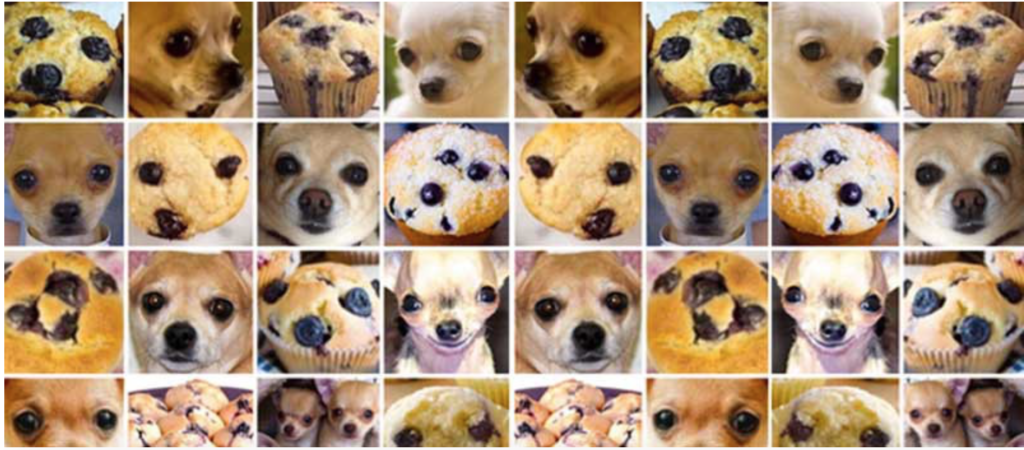Is It A Blueberry Muffin Or A Chihuahua?

Artificial intelligence (AI) is here and it is impacting health care. The question will become will the jobs for nursing decrease with the expanding AI?
We see it at grocery self-checkouts, being able to sign up online for a checking account leading to banks closing, etc. And the need for humans to do these jobs has been decreasing at an increasing rate.
We know that surgical robots have become the staple in health care. There are robots that can take vital signs, turn patients and even bathe them.
As AI continues to grow, one problem we see is that artificial intelligence cannot differentiate between a blueberry muffin and a chihuahua. Try this, are you able to distinguish muffins from dogs in the pictures below?
Unfortunately, AI is not yet at a point where it can distinguish the 2 but once we develop AI to the point it can tell one from the other, we are going to see a massive change in health care.
With AI, we no longer will need lab technicians. The machines will be able to read the lab tests so there will be no need for human participation.
I have heard that some doctors visit patients in a critical access hospital online rather than in person. In that case, I would think that the doctor would have to rely on the nurse’s assessment for palpation of the abdomen and other subtle signs that an AI would not be able to determine.
AI is coming and we need to be prepared. There are lots of AI initiatives being used in hospitals to optimize hospital efficiency, better engage with patients and improve treatment. Additionally, AI is helping doctors with differential diagnoses.
Just look up “artificial intelligence in health care” and you will find tons of developments on the horizon.
Here are some examples of how AI can efficiently diagnose and reduce errors. AI can predict and diagnose disease at a faster rate than most medical professionals. It is more accurate in making cancer diagnoses. AI is helping in radiology by automatically analyzing and reviewing scans.
So, what does all this mean for nursing?
I would love to say that health care will always be nurses for the high touch part of our process but as we’ve already seen the trends that people are getting released to home quicker and quicker and they are not staying inpatient for long.
There are even E-ICUs where nurses and doctors can watch several patients at the same time, requires less staff.
What do you think the future of AI means for you and your practice? I would love to hear your comments below.


